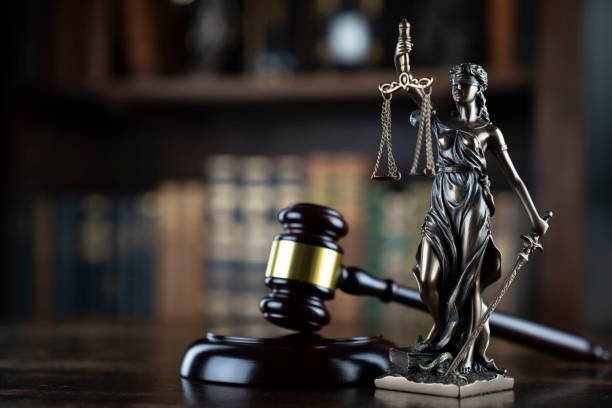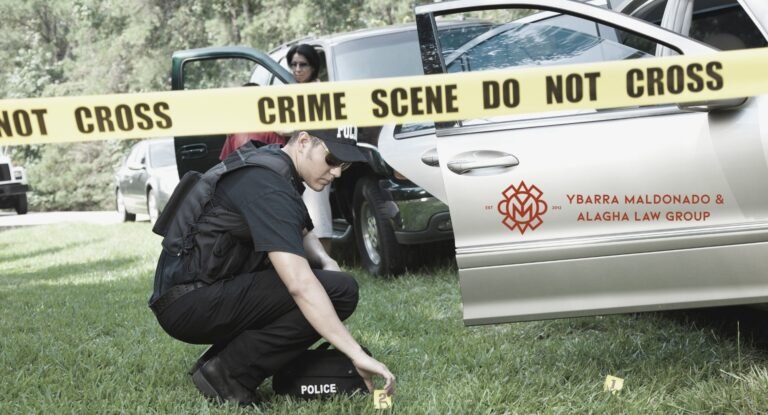Georgia Child Molestation Charges: Protect Your Rights
Being accused of child molestation is one of the most distressing and life-altering experiences anyone can face. In Georgia, such allegations are taken seriously and can trigger immediate and aggressive investigations even before any charges are formally filed.
If you or someone you know is facing such an accusation, it’s critical to understand that your response in the early stages can impact the entire course of the case. While every situation is unique, many individuals choose to seek early guidance from the best criminal defense attorney in Cumming, Georgia to better navigate the process and protect their rights. This blog outlines key steps to take if you’re accused and explains why staying informed and proactive matters.

📍 Location Information:
If you’re navigating such a case and are based in Forsyth County or nearby areas, legal professionals are available locally at:
Address: 2100 Westshore Drive, Suite 119, Cumming, Georgia 30041
Call: (470) 505-9791
Email: jennifer@lawofficeofjenniferscalia.com
Understanding the Nature of the Allegation
Child Molestation, in georgia is broadly defined and can include any act of sexual misconduct involving a minor. It’s important to note that such accusations may arise from misunderstandings, false claims, or even manipulated circumstances during custody disputes or family conflicts.
Regardless of intent or context, these cases are treated with utmost seriousness, and law enforcement is likely to respond swiftly once a complaint is made.
Remain Calm and Avoid Self-Incrimination
Receiving notice of an accusation or even informal suspicion can bring on panic, fear, and emotional turmoil. However, one of the most important things to do is remain calm.
Avoid:
- Confronting the accuser
- Posting anything on social media
- Speaking about the matter with others (even friends or family)
- Trying to “explain” your side to police without proper guidance
Even seemingly innocent statements can be misinterpreted or used against you during the investigation. In Georgia, law enforcement and prosecutors may begin building a case immediately upon receiving a report, often before you are fully aware of the scope of the situation.
Understand the Investigation Process
Typically, these cases begin with:
- Interviews or statements from the alleged victim
- Medical or psychological evaluations
- Digital evidence collection
- Law enforcement interviews and possibly a warrant or arrest
Because the legal system often errs on the side of caution when minors are involved, individuals may face legal action even before having the opportunity to respond.
Understanding this process allows you to take action early gather documents, avoid impulsive behavior, and preserve your right to a fair and balanced review.
The Risk of Speaking Without Representation
You may be tempted to clear your name by cooperating fully or offering your version of the story upfront. While cooperation is a positive gesture, it’s essential that you do so with informed guidance.
Speaking to investigators without proper legal counsel can lead to misinterpretation of your words, unintentional admissions, or loss of valuable legal defenses later on.
The goal is not to avoid accountability, but to ensure that your voice is heard accurately and your rights are protected throughout the legal process.
Why Legal Strategy Matters
Each child molestation case is unique, with different circumstances, evidence, and emotional factors. That’s why a tailored approach is necessary.
Important aspects to consider in building a defense might include:
- Relationship to the accuser
- Previous communications or conflicts
- Mental or emotional history of the parties involved
- Witness credibility
- Timeline inconsistencies
- Potential for fabricated or coerced allegations
Having an experienced professional who understands the laws in Georgia and has handled similar situations before can provide clarity, guidance, and a realistic outlook.
Avoiding Further Harm During Investigation
In cases like these, damage to one’s reputation, family relationships, and even career can begin long before any legal verdict is reached. While the investigation is ongoing, consider the following suggestions:
- Minimize your public presence online and offline
- Refrain from discussing the case outside of privileged settings
- Document your whereabouts, conversations, and any relevant communications
- Preserve evidence like texts, emails, or other digital interactions
These proactive measures can support your side of the story later if legal proceedings begin.
What Happens After an Arrest or Formal Charge?
While not every accusation leads to charges, if the matter progresses, you could be notified of formal charges, court appearances, and pretrial procedures. This can feel overwhelming but it also provides an opportunity to review the evidence against you, raise questions of credibility, and present supporting facts or witnesses.
Many individuals find that with preparation and structured representation, the legal process becomes more manageable and less intimidating than it first appears.
When You’re Unsure What to Do
If you’ve received notice of an investigation or accusation or even suspect that one may arise it’s wise to consult someone knowledgeable about the local legal process. Acting early can reduce the chances of accidental missteps that might hurt your case later.
This doesn’t mean making assumptions or jumping to conclusions. It means staying informed, focused, and calm during one of life’s most stressful challenges.
Frequently Asked Questions (FAQs)
1. Can someone be accused of child molestation without any physical evidence?
Yes, in some cases, allegations may be based on testimony alone. This is why it’s critical to preserve communications, timelines, and supporting documentation that can help provide context.
2. Should I talk to law enforcement if I know I’m innocent?
It’s natural to want to explain your side, but speaking without legal support can be risky. Innocent statements can sometimes be misunderstood or taken out of context. It’s better to wait until you’re fully informed about your rights and legal strategy.
3. How long does a child molestation case take to resolve in Georgia?
Timelines vary depending on the complexity of the case, availability of evidence, and court scheduling. Some cases resolve quickly, while others may require more time for investigation and preparation.
📍 Location:
Address:2100 Westshore Drive, Suite 119 Cumming, Georgia 30041
Call: (470) 505-9791
Email: jennifer@lawofficeofjenniferscalia.com




